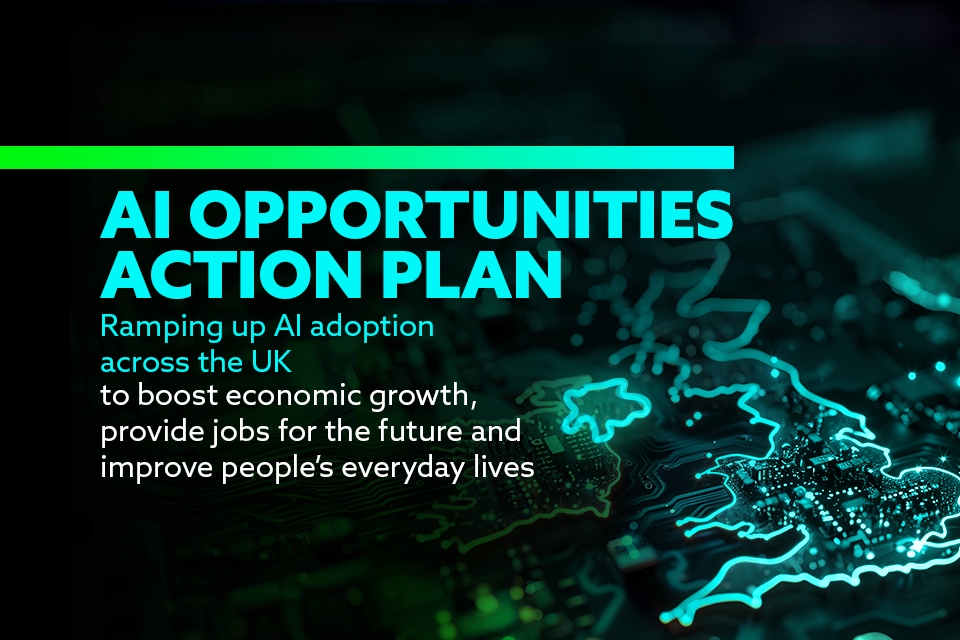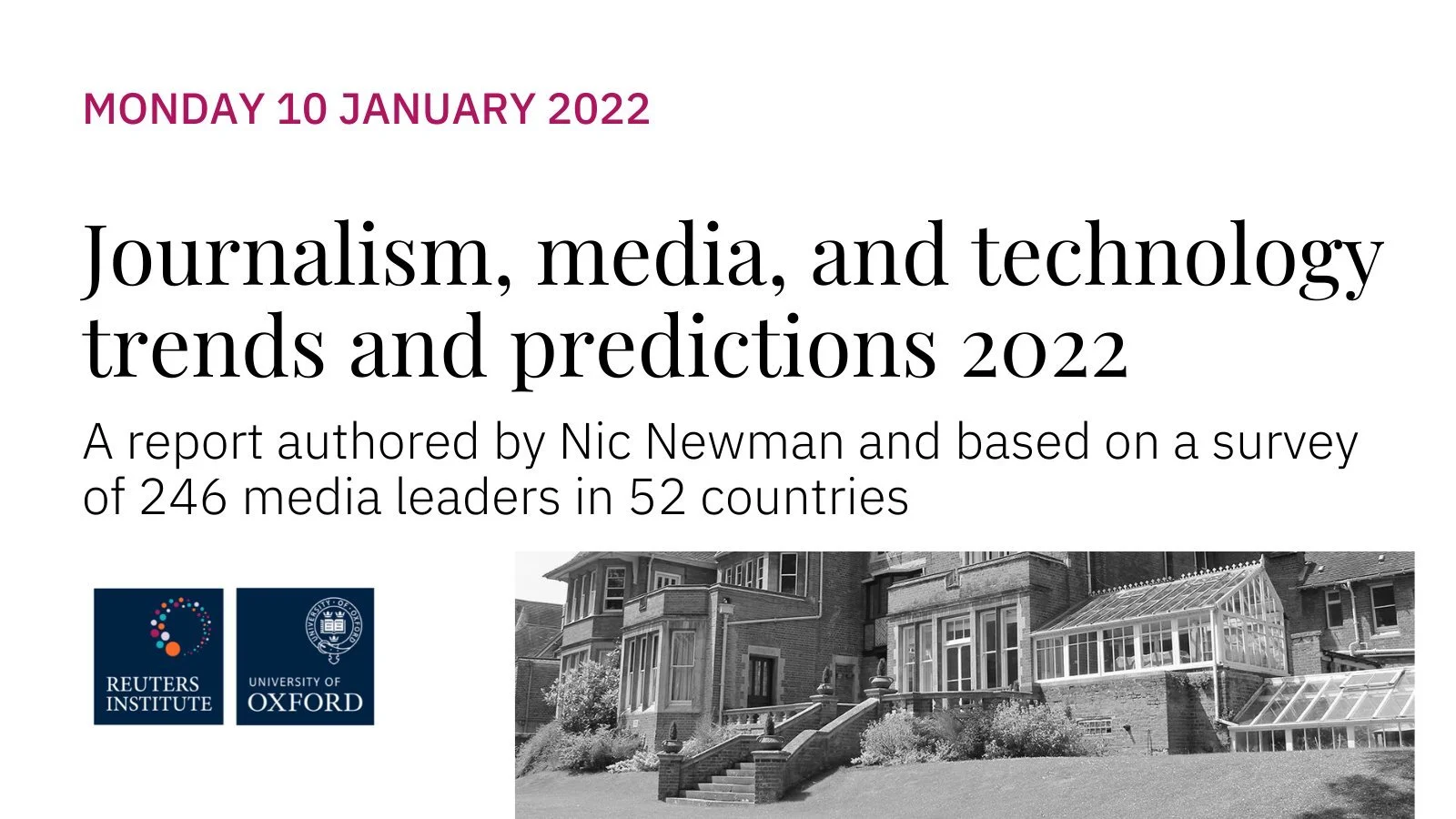Reuters Institute's Future of Media Trends 2025: Strategic Insights for Businesses, Governments and Investors
The Reuters Institute for the Study of Journalism released its latest report, ‘Journalism, media, and technology trends and predictions for 2025,’ this week.
The findings share insight into how the media continues to evolve and its impact on everyone who relies on it to engage, influence, and communicate. Reaching audiences whose media consumption habits have changed over the last ten years is becoming increasingly complex. New technology is disrupting not just the platforms but also the habits and levels of trust of audiences.
Generative AI, social media influencers, and algorithm-driven platforms are increasingly shaping public discourse today and challenging traditional fact-based journalism.
Leaders in business and government worldwide, as well as start-up founders who want to grow their digital products, need to understand the market today and the media consumption habits of the audiences they want to engage with and have conversations with.
The changing landscape requires a strategic rethink of building and managing reputations effectively.
Having read the report, I outline the key trends reshaping media globally, highlight their impact on trust and stakeholder engagement, and provide actionable recommendations to help organisations maintain relevance, credibility, and influence in this evolving environment.
The Changing Media Ecosystem: Challenges and Opportunities for Businesses and Governments
The 2025 Journalism and Technology Trends Report by the Reuters Institute reveals an increasingly fragmented and volatile media landscape shaped by the rapid evolution of generative AI, the dominance of platform algorithms, and shifting audience behaviours. These changes create significant challenges but also present opportunities for businesses, governments, and their advisors in strategy, communications, and stakeholder engagement.
Sadly, journalism faces growing threats from political polarisation, economic instability, and a decline in public trust. Only 41% of media leaders surveyed expressed optimism about journalism’s future, a sharp decline from prior years. At the same time, reliance on traditional platforms like Facebook and X (formerly Twitter) continues to plummet while new AI-powered platforms and influencers dominate audience attention.
For governments and businesses seeking to build trust, communicate effectively, and promote policies, these shifts necessitate new strategies to engage audiences across diverse and evolving channels whose trust in so-called traditional storytellers is at an all-time low.
Global Dynamics: The Role of Media in a Polarised World
The report highlights the global dimension of these challenges. In countries like Brazil and Romania, social media influencers and populist politicians bypass traditional media to engage directly with citizens. For example, Romanian presidential candidate Calin Georgescu’s TikTok-driven campaign resonated with younger voters, bypassing conventional media outlets. This reflects a broader trend where audiences—especially under-30s—consume news through non-traditional channels, often from influencers rather than institutional journalists.
For governments, this raises the stakes for transparent communication and proactive engagement. The undermining of traditional journalism, coupled with politically charged platforms, poses risks to the dissemination of accurate information. Businesses, particularly those operating in highly regulated or international markets, must navigate an environment where misinformation can escalate reputational risks and destabilise stakeholder trust.
According to last year’s Edelman’s Trust Report, trust in governments, businesses, and media has significantly declined over the past decade. In the UK, only 27% of respondents trusted the government, marking a historic low, while trust in businesses stood at just 45%, placing them in the “distrust” category. Media fares even worse, with only 31% expressing confidence, ranking the UK last among 28 surveyed countries. These trends highlight growing scepticism towards traditional institutions, driven by transparency, accountability, and misinformation concerns.
The Rise of AI and the New Content Ecosystem
Generative AI is reshaping how audiences access information. AI tools like ChatGPT and Perplexity integrate real-time news aggregation, providing concise summaries with minimal engagement with original publishers. While this may increase convenience for consumers, it challenges traditional media's visibility and monetisation models.
According to the report, 74% of media executives worry about declining referral traffic from search engines. This concern is heightened by AI’s potential to replace click-through links with integrated answers.
For example, in April 2024, the Financial Times entered into a strategic partnership and licensing agreement with OpenAI. This collaboration allows OpenAI to incorporate FT’s attributed content into its AI models, enhancing ChatGPT’s responses with select summaries, quotes, and links to FT journalism. The partnership also focuses on developing new AI products and features tailored for FT readers.
A month later, in May 2024, News Corp, the parent company of The Wall Street Journal and The New York Post, signed a deal with OpenAI to integrate its news content into AI platforms. Vox Media and The Atlantic also entered into licensing agreements with OpenAI, permitting the use of their content to train AI models and enhance the quality of AI-generated responses. In September, Condé Nast, owner of publications such as The New Yorker and Vogue, signed a multi-year agreement with OpenAI.
For businesses and international governments, who historically rely on traditional news outlets through which to communicate, this shift requires a reassessment of how they distribute their messages.
Strategies must focus on embedding key content directly into AI-supported platforms while ensuring accuracy and narrative control. While, companies are also adopting AI tools, the focus must also be on the content that each company has in terms of comms and storytelling that allows it to also compete in terms of output from questions that people, professionals and policy people use whether they are using Microsoft’s Copilot, Google’s Gemini, OpenAI’s ChatGPT or any other. Start-ups will need to compete here in how they present and disrupt the presence that enterprise companies will gain because of the data that they have to train respective Large Language Models.
Collaborative approaches, such as licensing agreements with AI platforms, may offer opportunities for trusted organisations to amplify their influence in the evolving ecosystem.
The Influence Economy: Shifting Public Trust
Trust is becoming increasingly decentralised, with influencers and creators often eclipsing traditional media in audience loyalty.
In the US, over 37% of under-30s now rely on influencers for political news, a phenomenon mirrored globally. This shift is not without risks; while some influencers bring fresh perspectives, others lack journalistic rigour, potentially propagating misinformation. For example, findings show that 62% of surveyed influencers admit they do not verify the content's accuracy.
Engaging in this ‘creator economy’ demands a delicate balance for businesses and governments. Partnering with credible influencers who align with organisational values can amplify messages while mitigating reputational risks.
Sharing without varying information comes with its risks for content creators and influencers. Many might make money now, but trust can quickly disappear.
For example, government agencies promoting public health campaigns or businesses launching sustainability initiatives can benefit from the authenticity influencers offer, provided they are carefully vetted.
Strategic Recommendations for Building Trust and Reputation in 2025
Adopt a Multi-Platform, Audience-Centric Approach
The fragmentation of media means audiences are spread across platforms like YouTube, TikTok, and WhatsApp.
Businesses and governments must meet their stakeholders where they are by diversifying content formats, including short-form videos, podcasts, and multilingual AI-generated summaries.
Scandinavian publishers are already integrating podcasts into subscription packages, which has created enhanced audience loyalty. Governments could replicate such models, delivering policy briefings or public service announcements via accessible and engaging formats.
Invest in Trustworthy Narratives Amid Misinformation
Political and economic polarisation demands proactive reputation management.
Businesses and governments must double down on transparency, using independent verification and partnerships with trusted outlets to counter misinformation.
In Australia, the introduction of news bargaining codes ensured platform accountability and provided financial support to struggling publishers. Governments elsewhere can adopt similar measures to sustain a healthy media ecosystem.
Leverage AI Responsibly
AI tools can enhance engagement but must be used carefully to avoid diluting organisational credibility.
Businesses should explore partnerships with AI platforms offering visibility for credible content while maintaining editorial control.
Governments, especially those in public health or education, can leverage AI chatbots and summarisation tools to enhance citizen engagement.
The UK Government’s Department for Business and Trade Digital, Data and Technology (DDaT), whom I supported for three years between 2016 and 2019, already uses AI for its service and product design and delivery.
Navigate the Creator Economy with Precision
Influencers are an essential bridge to younger audiences but require careful selection.
Businesses in highly regulated industries, like finance or pharmaceuticals, should prioritise collaborations with influencers known for their subject-matter expertise and adherence to ethical standards.
These influencers know that their audiences and community rely on them because of their knowledge, expertise and trust. Their business relies on their reputation.
Strengthen Resilience Against Platform Dependencies
Platforms remain volatile, with sentiment towards Facebook and X deteriorating sharply among publishers, especially since Elon Musk took over X (Twitter) and Mark Zuckerberg announced the ending of fact-checking. While these are critical issues, the number of bots ‘cooking’ engagement metrics must be a concern for those with an organic presence or who spend advertising money on these platforms.
Instead of over-relying on third-party platforms, organisations must build direct relationships with their audiences. Investment in owned channels, such as bespoke apps or subscription-based newsletters, will future-proof engagement.
Rather than go it alone, businesses should look at platforms and channels, and aggregators that audiences use to avoid creating additional fatigue amongst your stakeholders.
Strategic Communications and Stakeholder Engagement: Key Takeaways
The findings highlight the importance of integrated, flexible approaches for strategy, communications, and stakeholder engagement advisers. Advisers must guide clients to:
Engage Stakeholders Beyond Traditional Media: Emphasise influencer partnerships, AI platforms, and community-driven engagement to amplify messages.
Protect Reputation Through Scenario Planning: Develop robust crisis management frameworks to address risks from misinformation and AI-driven content disruption.
Advocate for Fair Policies: Support initiatives like collective licensing deals to ensure a level playing field for small publishers, fostering a diverse and trustworthy media ecosystem.
Localise Strategies for International Contexts: Tailor communications to regional media dynamics. For example, direct social media campaigns in regions like Latin America may be more impactful than traditional PR strategies.
Preparing for 2025 and Beyond
The evolving media landscape presents both challenges and opportunities for organisations seeking to communicate effectively and protect their reputations.
By embracing technological innovation, prioritising authenticity, and fostering resilience against misinformation, businesses and governments can position themselves as trusted voices in an increasingly fragmented world.
The imperative for advisers is clear: stay ahead of trends, adapt strategies for a global context, and help clients navigate complexity confidently. As media evolves, those who proactively engage with its changes will build trust, protect reputation, and influence public discourse.
It is our job to rebuild the trust between our audiences, stakeholders and ourselves. And that will require sharing some hard truths internally. The media and communications landscape has changed and leaders need to be aware of that if they are to deliver growth.






